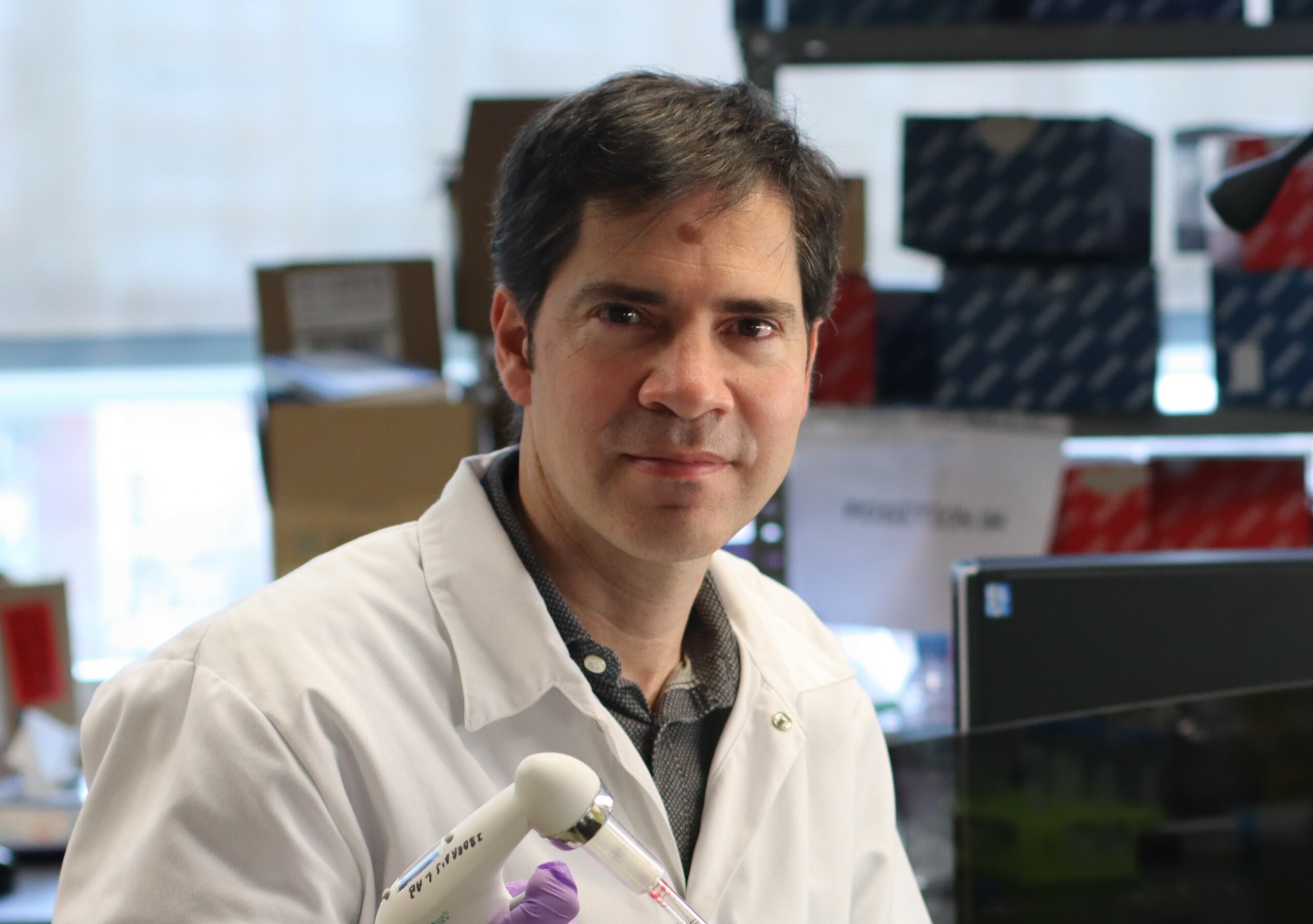Biosketch
During his clinical specialization and PhD in the group of Prof. Francisco Sánchez-Madrid at the Immunology Service, Hospital de la Princesa, in Madrid (Spain), David Sancho explored regulation of T-cell-dendritic cell synapse formation and C-type lectins in immunoregulation. This work led to 9 first-author articles and allowed him to complete his PhD in 2003 (cum laude & extraordinary prize).
As a postdoc in Prof. Caetano Reis e Sousa group at London Research Institute, David (supported by EMBO long-term and Marie Curie intra-european fellowships) identified DNGR-1 (CLEC9A) as a receptor highly restricted to conventional type 1 dendritic cells (cDC1s) that could be targeted for anti-tumor therapy (JCI 2008). DNGR-1 binds to dead cells and allows cDC1 retrieve antigens from cell corpses for cross-presentation (Nature 2009).
Research profile
At the Immunobiology lab funded by the ERC Starting Grant (2010-2016), David Sancho group found that cross-presentation via DNGR-1 facilitates CD8+ T cell responses to cytopathic viruses (JCI 2012) and greatly contributes to priming of precursors of resident memory CD8+ T cell (Trm) precursors (Immunity, 2016a), key cells that can contribute to anti-tumor immunity (Nat. Commun. 2017). Notably, DNGR-1 is a C-type lectin receptor with an activating motif that couples to non-receptor tyrosine kinase activation but they found that it can also activate tyrosine phosphatases and inhibit inflammation driven by tissue damage (Science 2018). Sancho lab established the concept that C-type lectin receptors can signal dually via kinases and phosphatases and showed that this can impact the outcome of infection (J. Immunol. 2015; Immunity, 2016b; Cell Reports 2018a). The Immunobiology lab at CNIC also advanced our understanding of the relevance and function of cDC1s in pathologies like Leishmania infection (Eur. J. Immunol. 2015), asthma (JCI insight 2017), obesity (Cell. Mol. Immunol. 2022) and cancer immunotherapy (Cancer Discov. 2016; JITC 2019, Nat. Rev. Immunol. 2020; JITC 2021).
Main research questions:
- Investigate how pathogen and tissue damage sensing affects mitochondrial metabolism in myeloid cells.
- Dissect how manipulation of mitochondrial metabolism orchestrates macrophage and dendritic cell function.
- Explore the molecular and metabolic pathways controlling trained immunity in macrophages and the role of trained immunity in health and disease.
- Research on how microbiota-derived metabolites affect host physiology and disease.
An independent branch of research funded by the ERC Consolidator Grant (2017-2023) focuses on immunometabolism research on myeloid cells. Sancho lab has established how innate sensing in macrophages can affect mitochondrial complexes, resulting in enhanced cytokine production and affecting the polarization of macrophages (Nat Immunol. 2016; Nat Metab. 2020). The induction of trained immunity in innate cells, mainly macrophages and how innate sensing in DCs and macrophages can repurpose mitochondrial metabolism for cytokine production has also allowed collaboration with industry (Inmunotek S.L., Alcalá de Henares, Spain) to decipher the mechanisms underlying the efficacy of a polybacterial preparation in protection against heterologous infections in clinical trials. We demonstrated that this preparation can protect against viral infections and increase the immunogenicity of antigen-specific vaccines (Cell Reports 2018a; Cell Reports 2018b; Front. Immunol 2021; Cell Reports 2022). Latest work in the lab is focused on regulation of macrophage function by mitochondrial activity in tissues (Immunity, 2023) and regulation of DC function by mitochondrial metabolism. His group is also exploring how microbial metabolites can affect host physiology.
Positions and training
2021 – present Full Professor (tenured) Immunobiology Lab, CNIC, Madrid, Spain
2016 – 2021 Associate Professor (tenured), Immunobiology Lab, CNIC, Madrid, Spain
2010 – 2016 Assistant Professor (tenure track), Immunobiology Lab, CNIC, Madrid, Spain
Contributions
- Organization of meetings on the field (EMDS 2017 Madrid; CNIC Inflammation and Immunity day 2014, 2016, 2018, 2022; International symposium of dendritic cells 2024 Barcelona).
- Member of the European network for Immunometabolism (EFIS study group). Outreach activities for the European Immunometabolism Network
